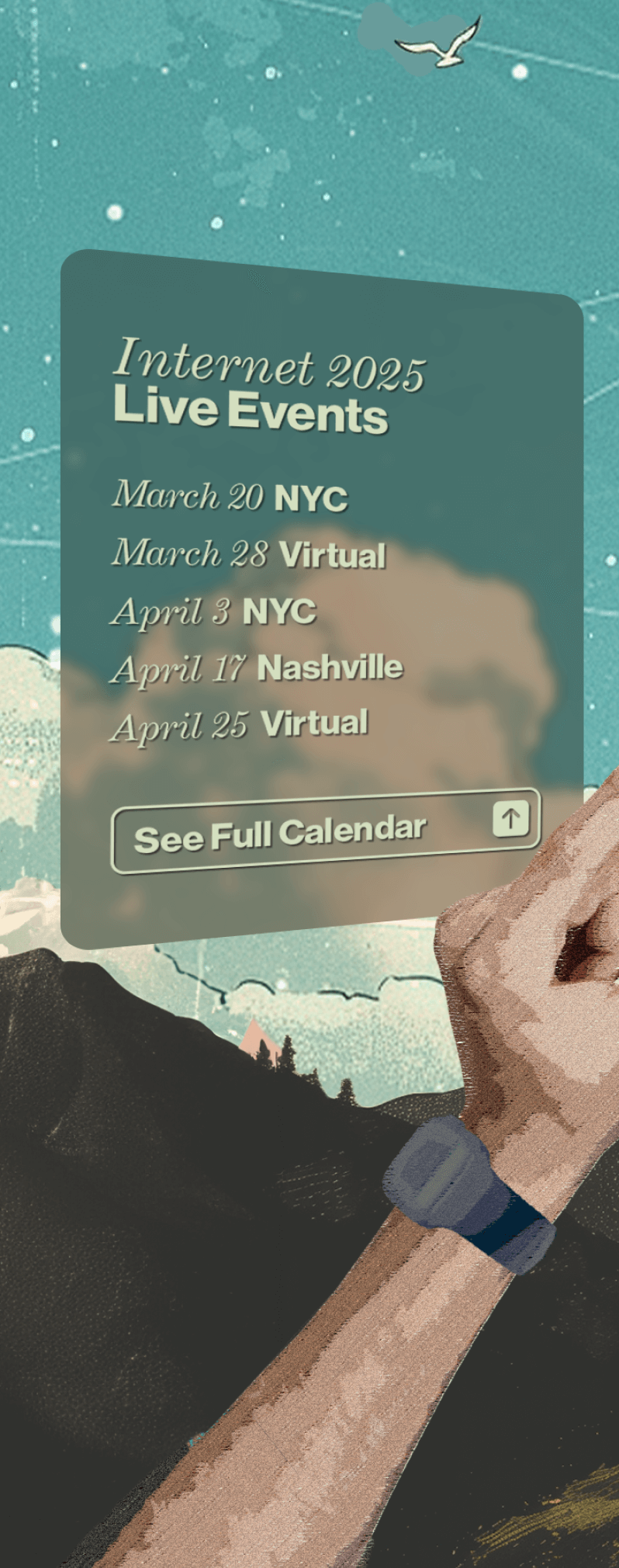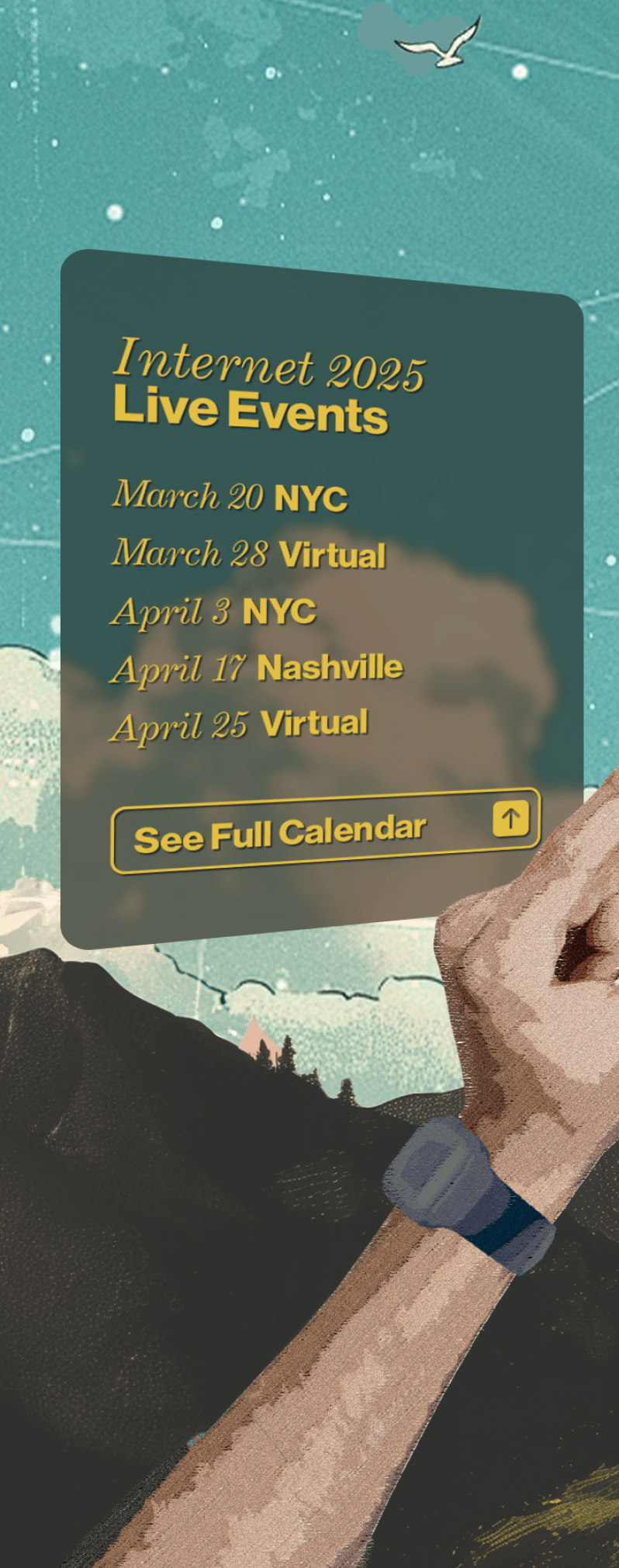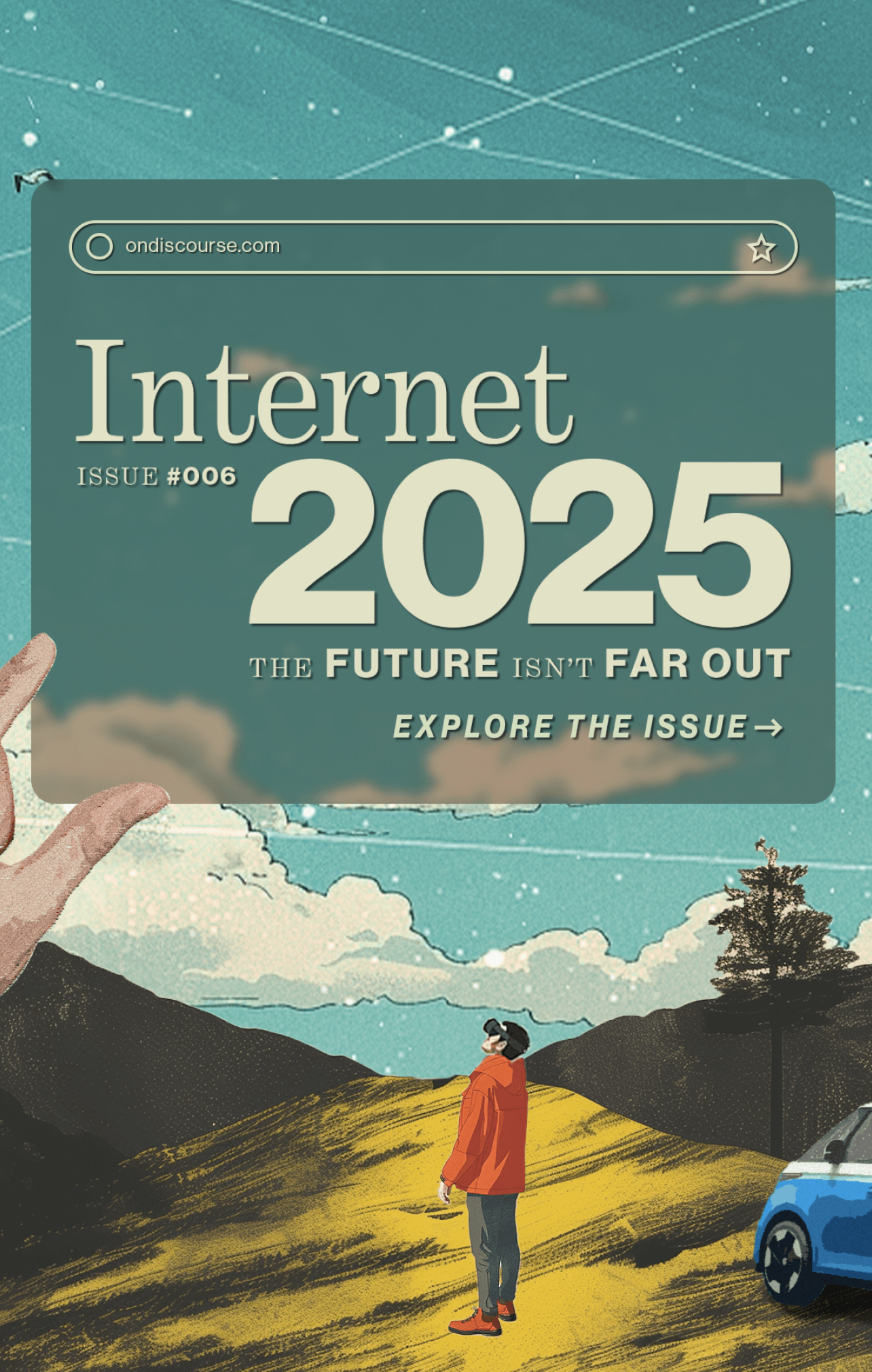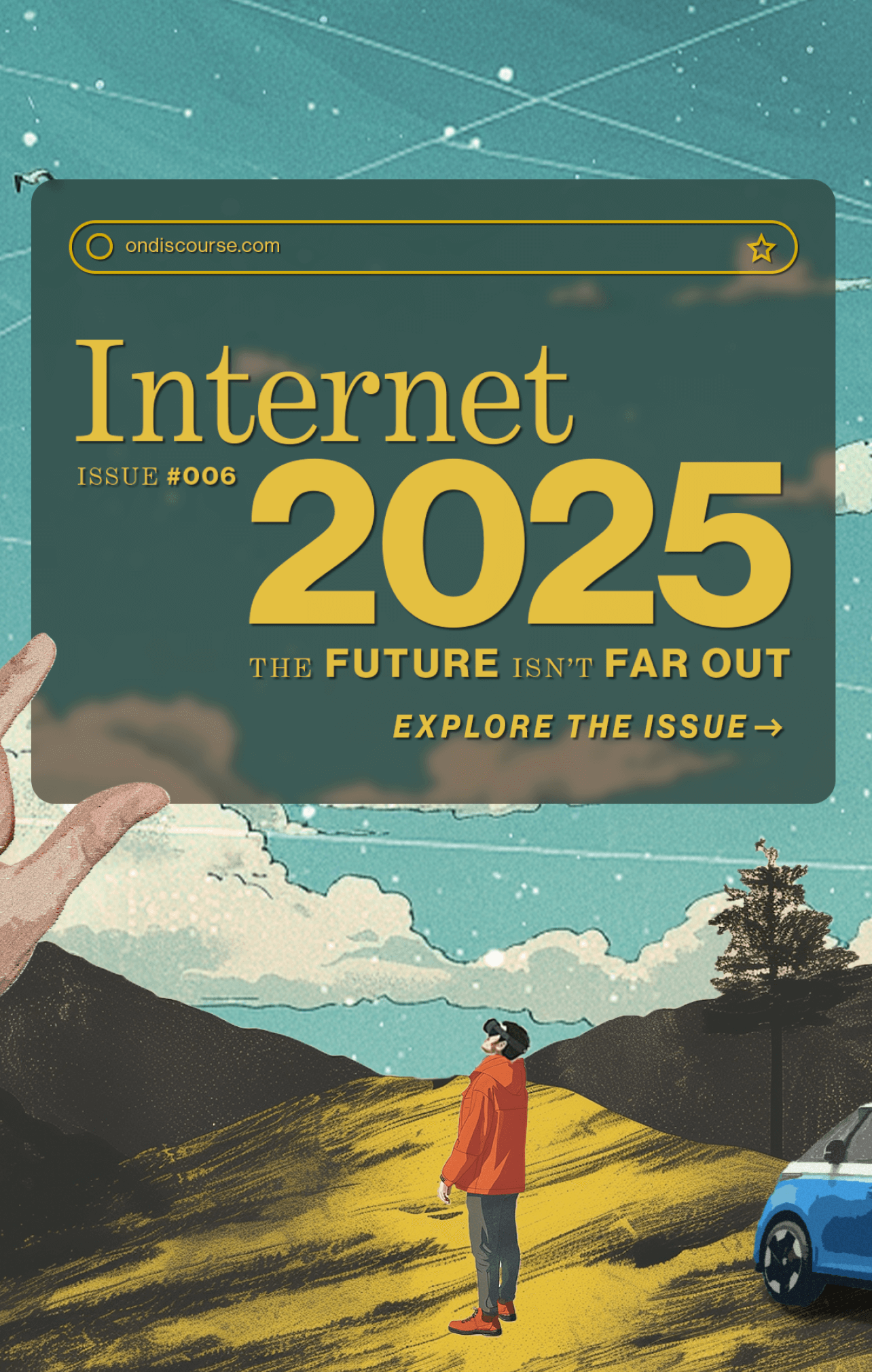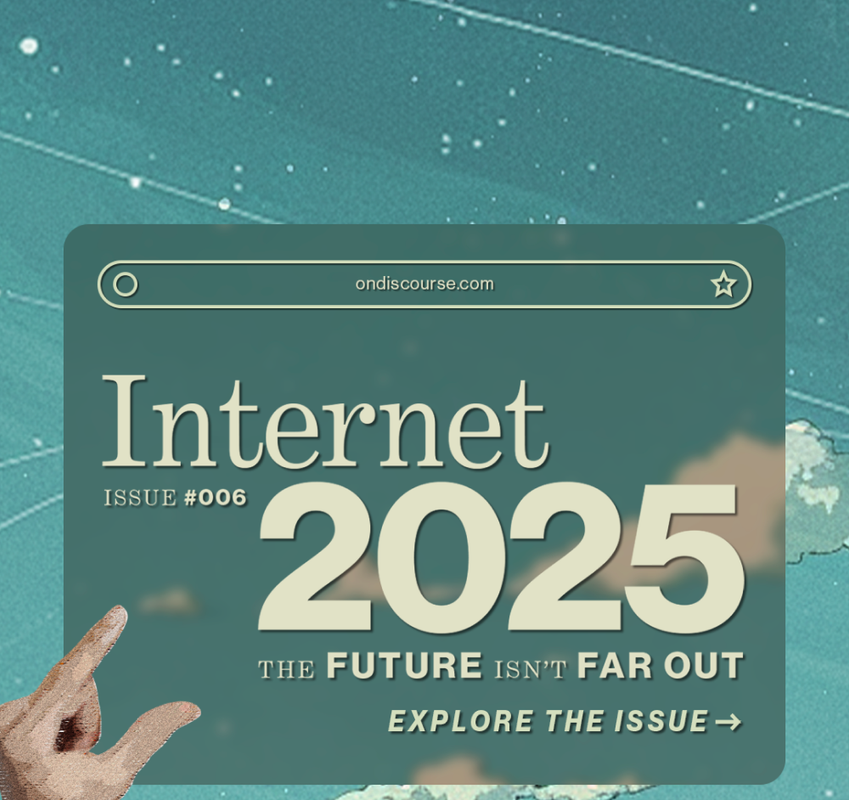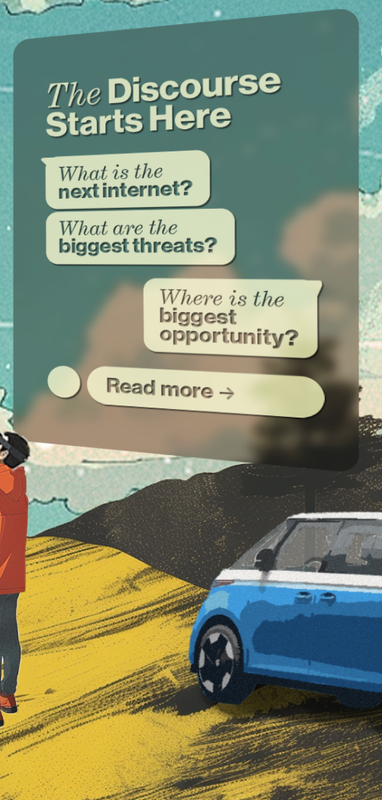In 2025,
Media Needs
to Take Community
Back From
The Platforms
The biggest content creators can create the most valuable online communities

Editor’s note: Our own head of content and platform has a strong take about the future of media in 2025. We think his perspective has credibility; he’s pioneered social media publishing at Reuters, edited at the Wall Street Journal; ran one of the most innovative media startups in the aughts, and his team won an Emmy for digital work at The Daily Show. His take for the future sounds like a blast from the past. We think he has a point.
This post was written by human Anthony DeRosa and narrated by AI Anthony DeRosa (powered by Wondercraft.ai).
The way we communicate and share our passions has drastically evolved in the past two decades. Social media platforms, operated by large tech companies, have become the central hubs for discussions on a myriad of topics, from technology to automobiles.
It shouldn’t have been this way. Media companies should own their audiences. They’ve allowed tech companies to steal their content and monetize it by providing a platform for readers to discuss it. How absurd is that? The only value add that tech companies have layered on top of the content paid for by media organizations is to shove it through a system optimized for engagement, which usually means the most polarizing and hate-read-worthy stuff gets the most eyeballs.
Now, they’re letting AI companies get away with this. AI companies, like OpenAI and Anthropic, are hoovering up massive amounts of media content, paid for by media companies, that AI platforms can then reformat into an information system to provide a new experience for the same readers who would have gone to the source for that information.
Let’s be clear, this is entirely the fault of media companies, who should have been thinking like tech companies all along and leveraging AI for their benefit instead of allowing OpenAI to take their content and raise billions off of it. Where are the tech R&D labs inside media companies? Why are they constantly 10 steps behind? Whether the reason is snobbery, hubris, or a combination of both, they failed to see the path of their salvation right in front of them. Instead, they allowed others to take their business and grow it exponentially, and without a dime to show for it.
While it seems they’re about to get mugged by OpenAI, another opportunity for media companies has emerged. Today, social media is in decay. Media companies could use this opening to take their communities back. Many social media users are now longing for a return to a more specialized, intimate form of online community. There’s a desire to return to the days when conversations about specific interests were held on dedicated media websites, where affinity and expertise, rather than algorithms, drove the discussions.
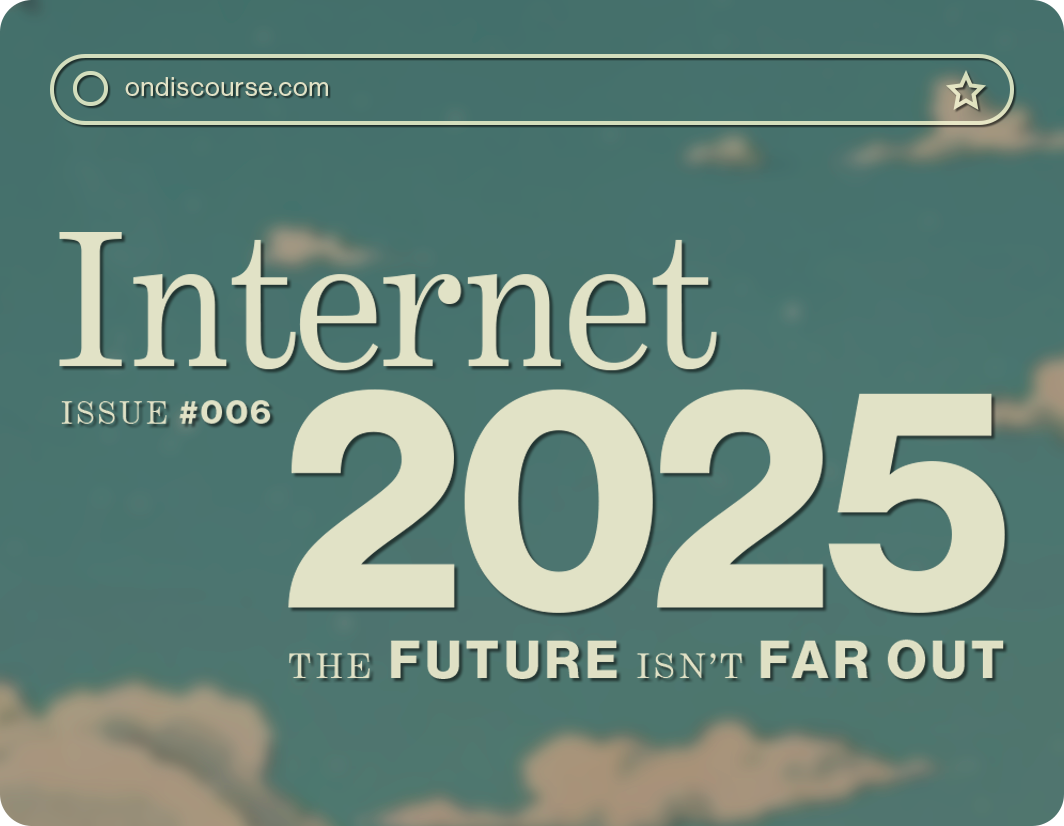
A NEW ECONOMIC MODEL
Who should run online communities?
Platforms, media, or maybe something else? We capture a debate...
MEDIA
In 2025, Media Needs to Take Back Community From The Platforms The biggest content creators can create the most valuable online communities

Anthony DeRosa
05•02•24
SOMETHING ELSE
Media Can't Handle Community Your argument sounds right but doesn't hold up
Overheard at ON_Discourse
05•03•24
The Lost Art of Specialized Forums
There was a time when media websites were not just destinations for content, but also thriving communities where enthusiasts and experts gathered. Websites were not just sources of news and reviews but also vibrant forums for discussion and exchange. These platforms offered a sense of belonging and a shared space for individuals passionate about specific subjects. The conversations were rich, informed, and focused, providing value that oftentimes far exceeded the content of the articles themselves.
One of the best examples of this was Kinja, the publishing system built into the Gawker network. Kinja elevated comments to posts. You could find that some comments that originated under articles became the spark that led to even more discourse than the original article itself. Nick Denton, Gawker’s founder, was smart enough to realize this and built Kinja in such a way that elevated comments to the level of articles.
The quality of comments was so strong that many of Gawker’s best writers—Hamilton Nolan, Ryan Tate, Gabriel Delahaye, and Richard Lawson among them—were plucked from the comments section to become staff writers. The debate and commentary that ensued there became a farm system for some of the internet’s most interesting writers in the 2000s.
The success of early media communities stretched into the newsroom. An engaged community feeds the editorial machine with contextual, relevant perspectives guaranteed to maintain valuable audience engagement. Not only is it a good feature, it’s a good business model.
The rise of social media changed the landscape. Platforms like Facebook, Twitter, and Reddit made it easier than ever to find and participate in conversations on any topic imaginable. The barrier to entry was low, and the reach was vast. However, this accessibility came at a cost. Discussions became broader and less focused. The intimate community feeling of dedicated forums was lost, and the quality of conversations often suffered. Moreover, the algorithms that dictate what we see on social media can limit exposure to new ideas and diverse opinions, creating echo chambers.

The intimate community feeling of dedicated forums was lost, and the quality of conversations often suffered. Moreover, the algorithms that dictate what we see on social media can limit exposure to new ideas and diverse opinions, creating echo chambers.
The Challenge of Managing Community
Moderating a dedicated space to ensure discussions remain respectful, informative, and on-topic is a considerable challenge. As online discourse became increasingly polarized, moderation grew more complex and resource-intensive. Media companies faced the difficult balance of fostering free speech while preventing harassment, misinformation, and toxic behavior. For many, the risks and costs associated with maintaining these standards became too great.
Around 2015, media websites began to retreat from commenting. Media companies tend to copy each other’s strategies, if one decides comment sections are no longer useful, like lemmings they all fall into place and join the trend. In the last decade since that retreat, innovative approaches, such as integrating forums more closely with content, leveraging advanced moderation technologies, and exploring alternative revenue models, offer hope for the future. These efforts aim to recapture the sense of community and depth of discussion that specialized forums once provided, adapting them to the realities of today’s internet landscape.
Despite these challenges, there remains a significant appetite for specialized spaces among many internet users. These individuals seek out places they can dive deep into their interests with like-minded peers, away from the noise and distractions of broader social media. Recognizing this, some media companies and independent platforms are exploring new models to revive the spirit of these communities in a way that aligns with the current digital ecosystem.
Furthermore, these communities offer a level of moderation and curation often missing from sprawling social media discussions. They can provide a safer, more respectful space for exchange, free from the trolls and misinformation that plague many social networks.
Your Audience is Your Business
The longing for a return to media website forums is not just about nostalgia; it’s about recognizing the value that these communities add. When conversations are tied to media sites focused on specific subjects, the discussions are enriched by the content. They are informed by the latest articles, reviews, and analyses, creating a cycle of engagement that benefits both the readers and the websites. This environment fosters a deeper connection between users, who are drawn together by shared interests and expertise.
The challenge is for media companies to recognize the untapped potential of their online communities. Investing in these spaces, encouraging engagement, and facilitating conversations can add significant value. This goes beyond simply having a comment section under articles; it’s about creating integrated forums, hosting Q&A sessions with experts, and actively participating in discussions. Media companies have the unique advantage of being able to offer authoritative content that can anchor and stimulate conversation, something that generic social media platforms cannot replicate.
The desire to shift back to specialized forums on media websites is a call for a more meaningful online community experience. It’s an acknowledgment that while social media has its place, there is immense value in gathering spaces that are dedicated, focused, and enriched by shared interests and expertise. For those passionate about technology, cars, or any other subject, the hope is that media companies will rise to the occasion, revitalizing their community engagement efforts. In doing so, they can rekindle the sense of belonging and purpose that once defined the online discussions of enthusiasts and experts alike.
Media
Can't
Handle
Community
Your argument sounds right but doesn’t hold up
Editor’s note: Anthony had a long chat with a prominent media figure who has dabbled in a lot of noteworthy online community experiences. This reaction piece reflects some of the hidden costs of pursuing a large scale community strategy. Does this make Anthony’s take wrong?
This post was written by a human and narrated by an AI-generated voice. (powered by Wondercraft.ai).
Legacy media outlets, with their grand history and established presence, are too stuck to foster genuine community engagement. These organizations carry the dual burdens of size and tradition, which can restrict the flexibility needed to adapt to the rapidly changing digital landscape. The culture of old media is too strict to open itself to real communities.
One of the core struggles within these institutions is the rigidity of editorial norms that do not necessarily align with the conversational, nuanced content that modern audiences gravitate towards. In contrast, platforms like podcasts allow for a meandering exploration of topics without the pressure to reach definitive conclusions. This format caters to a substantial appetite for extended discourse that is not just informative but also engaging on a personal level.
Moreover, there is often trepidation within these traditional media houses to fully embrace new forms of interaction and community-building. The fear of diluting the brand’s voice or alienating segments of an established audience can lead to conservative content strategies that ultimately inhibit genuine engagement. They don’t want to be seen as unknowing; they always want to be right. More than that, they think they have to be right in order to be relevant.
The fear of diluting the brand’s voice or alienating segments of an established audience can lead to conservative content strategies that ultimately inhibit genuine engagement.
Yet, it’s this very engagement that is crucial for the survival and growth of media institutions in the digital era. Community isn’t just about bringing people together under a common brand; it’s about fostering an environment where dialogue, interaction, and personal connection thrive. This challenge is magnified in legacy media by the need to balance respect for traditional journalistic values with the demands for more dynamic, interactive content formats.
The rise of individual content creators and smaller, more agile media entities showcases a stark contrast. These creators are not bound by the same constraints and can therefore pivot quickly, experiment more freely with content, and build intimate communities around niche topics. Their success underscores the need for larger media companies to innovate in community engagement without sacrificing the editorial integrity that has defined them.
Building community in this context requires a reevaluation of what community means in the digital age. It demands an openness to evolving how stories are told, engaging with audiences on their terms, and creating spaces for meaningful interaction.
As legacy media navigates these turbulent waters, the path forward involves a delicate balancing act: integrating new media dynamics while staying true to the core values that have sustained them through the ages. Only by doing so can they hope to not only preserve but invigorate their place in the digital world, turning their ocean liners into agile fleets ready to meet the future.


